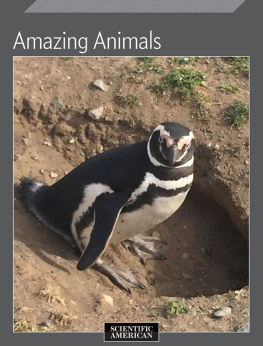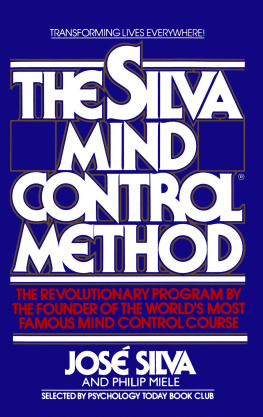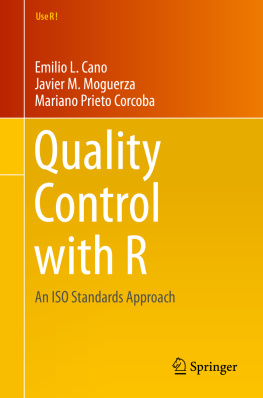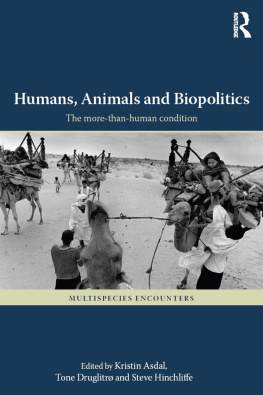Self-Control in Animals and People
Michael Beran
Georgia State University, Atlanta, GA, United States
Table of Contents
Copyright
Academic Press is an imprint of Elsevier
125 London Wall, London EC2Y 5AS, United Kingdom
525 B Street, Suite 1650, San Diego, CA 92101, United States
50 Hampshire Street, 5th Floor, Cambridge, MA 02139, United States
The Boulevard, Langford Lane, Kidlington, Oxford OX5 1GB, United Kingdom
Copyright 2018 Elsevier Inc. All rights reserved.
No part of this publication may be reproduced or transmitted in any form or by any means, electronic or mechanical, including photocopying, recording, or any information storage and retrieval system, without permission in writing from the publisher. Details on how to seek permission, further information about the Publishers permissions policies and our arrangements with organizations such as the Copyright Clearance Center and the Copyright Licensing Agency, can be found at our website: http://www.elsevier.com/permissions.
This book and the individual contributions contained in it are protected under copyright by the Publisher (other than as may be noted herein).
Notices
Knowledge and best practice in this field are constantly changing. As new research and experience broaden our understanding, changes in research methods, professional practices, or medical treatment may become necessary.
Practitioners and researchers must always rely on their own experience and knowledge in evaluating and using any information, methods, compounds, or experiments described herein. In using such information or methods they should be mindful of their own safety and the safety of others, including parties for whom they have a professional responsibility.
To the fullest extent of the law, neither the Publisher nor the authors, contributors, or editors, assume any liability for any injury and/or damage to persons or property as a matter of products liability, negligence or otherwise, or from any use or operation of any methods, products, instructions, or ideas contained in the material herein.
British Library Cataloguing-in-Publication Data
A catalogue record for this book is available from the British Library
Library of Congress Cataloging-in-Publication Data
A catalog record for this book is available from the Library of Congress
ISBN: 978-0-12-812508-3
For Information on all Academic Press publications visit our website at https://www.elsevier.com/books-and-journals
Publisher: Nikki Levy
Acquisition Editor: Emily Ekle
Editorial Project Manager: Carly Demetre
Production Project Manager: Mohana Natarajan
Cover Designer: Matthew Limbert
Typeset by MPS Limited, Chennai, India
Acknowledgments
Michael Beran
I have a lot of people to thank for helping this book come together, in terms of what it took to write it and what it took to get to a point in my own career where I was (I hope!) qualified to write it. At many points, a person or small number of people put me on this path, or kept me on it, and so without them, this book would not have been possible. I am grateful to one of my graduate mentors Duane Rumbaugh, for making me even begin the process of studying self-control. Despite going to graduate school to study numerical cognition across species, Duane wanted me to broaden my perspectives, and so he told me I had to do something different for my masters degree thesis project. From that prodding, combined with my interests in numerical cognition, I came across the work of Sally Boysen and the reverse-reward contingency task, and from there I was led to Walter Mischels work with the marshmallow task and work on intertemporal choices, and many of the other things you will read about later. So, Duane kicked this whole thing off. Duane passed away while I was writing this book, and so he will not have a chance to read it. I think he would have liked it, and what I know is that any corrections he would have offered would have come gently and with real concern for my feelings and my growth as a scientist. Later, I had the support of David Washburn as my dissertation adviser and James Pate as another of my mentors. They helped shape and guide my development as a cognitive psychologist, and they taught me how to approach doing psychological science. Jim and Davidany split infinitives in here are intentional, just to keep you sharp! David also provided countless hours of relaxed discussions of science, teaching, and mentoring, either in a plane or in a van on the way to or from a conference, or when I was routinely beating him at ping pong or racquetball (at least, that is how I remember those games going!). Except for the two times he almost got us arrested at the Canadian border, I am thankful for everything he has done to help me through my career.
During the many hours of data collection I did while thinking about self-control in animals, I was very fortunate to work with amazing people, both at Georgia State University and around the world. Ted Evans and I conducted more studies than I can even remembersome worked, some did not! But, without his help, I would not have been nearly as productive, and real insights would have been lost. Ted, for example, figured out how to see if the chimpanzees would self-distract during their own version of the marshmallow test, and when they did, I was really amazed. Crucial contributions were also made by Audrey Parrish, my first graduate student, who is now a professor at The Citadel. Audrey is perhaps the hardest working person I have ever been around, and countless times we both saw the same path forward on a project. She is a trusted colleague and a close friend, and I miss the chance to meet her in a coffee shop to talk data, science, and life. Audrey still ranks at the top of the list of funniest things I have ever seen someone do at a conference (but, I am sworn to secrecy on that!). Bonnie Perdue did her postdoctoral work with me and is now a professor at Agnes Scott College. Bonnies creativity brought a whole new line of research to the lab, as she found a way to translate my fascination with sushi express lines to a method we could use to test self-control in monkeys. I still hope she will find a way to let us test elephants on delayed gratification (we once did try with otters, but that is a story for another day!). There was a time when Ted, Audrey, Bonnie, and I could never end a meeting in its allotted time, for two reasons: First, because we kept coming up with new ideas, and no one was willing to leave until we hashed those out, and second, because we liked being around each other so much. I think there is nothing better than being in a lab where you can work on a grant, look at new data, talk about new ideas, debate the best way to do a statistical test, and also shoot each other with Nerf guns. Those three people have moved on now from the Language Research Center (LRC), and I hope they know how much I miss them.
Fabio Palieri and Elsa Addessi, both at the Institute of Cognitive Sciences and Technologies in Rome, influenced my thoughts constantly over the past decade. They are wonderful colleagues, who share ideas and who are generous with their time. As I tell in more detail later, Fabio was the driving force behind the hybrid delay task, which we continue to use to great effect in studies with nonhuman animals. He and Elsa have made huge contributions to what we know about self-control across species, and their visits to Atlanta were truly wonderful times for me. In addition, it has been a pleasure to work with Bill Hopkins at Georgia State, who gave me the chance to see what a large group of chimpanzees might do on some of our delay of gratification tests, and to work with Erin Stromberg and Amanda Bania at the Smithsonian National Zoo where we tested orangutans delay of gratification and other cognitive abilities. Other important colleagues over the years who have influenced my thinking about animal cognition and made doing science more fun include Christian Agrillo, Sarah Brosnan, Josep Call, Barbara Church, Jon Crystal, Gil Einstein, Tim Flemming, Rob Hampton, Lisa Heimbauer, Megan Hoffman, Andrew Kelly, Emily Klein, Rob Latzman, Tom Putney, Ken Sayers, Bennett Schwartz, David Smith, and Jeff Stevens.












